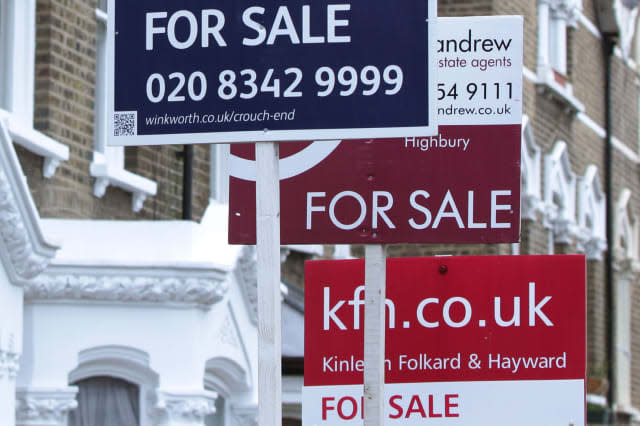Average house price hits new record

House prices increased to another new all-time high of £188,949 on average in July but the pace of growth is slowing, Nationwide has reported.
Values edged up by 0.1% month on month across the UK, marking the smallest rise seen in 15 months as stricter mortgage lending rules helped to fuel a slowdown in activity, the building society said.
On a year-on-year basis, growth in values remained in double digits for the fourth month in a row, although the pace of the annual uplift fell back from 11.8% in June to 10.6% in July.
Robert Gardner, chief economist at Nationwide, said the winding down of price growth "was not entirely unexpected, given mounting evidence of a moderation in activity in recent months".
Separate reports have shown a dip in mortgage approvals following the introduction of toughened mortgage lending rules at the end of April under the Mortgage Market Review (MMR).
The new rules force lenders to ask people applying for a home loan more detailed questions about their spending habits, in order to work out whether they can truly afford their repayments, both now and when interest rates eventually rise.
Article continues below
More recently, there have been signs of a recovery in mortgage approvals as the new MMR rules bed in.
Mr Gardner said: "At least part of the slowdown in activity relates to the introduction of Mortgage Market Review measures.
"The modest rebound in mortgage approvals in June adds weight to the notion that the slowdown will prove temporary, though the underlying pace of demand remains unclear.
"With the labour market strengthening, mortgage rates expected to remain low and consumer confidence rising, activity is likely to recover in the months ahead."
Mr Gardner said that, in the longer term, house price movement will depend on the volume of homes coming on to the market. A lack of homes to choose from has helped to put an upward pressure on house prices over the last year as the economic recovery has taken hold.
He continued: "While there have been some encouraging signs that construction activity is picking up, the pace of home building continues to run far below most estimates of what would be required to keep up with household formation in the years ahead."
Mr Gardner also said that a modest recovery in the number of housing transactions, a pick-up in house price growth and the introduction of higher stamp duty rates on more expensive properties have helped to push stamp duty revenues close to all-time peaks.
He said: "Stamp duty revenues are near the all-time highs recorded in 2007/08, reaching over £10 billion in the 12 months to June 2014...
"We estimate that London contributed around 42% of the total stamp duty paid on residential properties in 2013/14, even though the capital only accounted for (around) 15% of house purchase transactions.
"This largely reflects the substantial and growing gap between house prices in the capital and the rest of the UK, where the typical London home now costs more than twice the national average.
"By contrast, the North West, where the price of a typical house is well below the national average, accounted for 3% of the total stamp duty paid, markedly less than its 10% share of property transactions."
Nationwide's analysis of Land Registry data, which covers England and Wales, found that around £70 million worth of stamp duty was generated in Wales in 2013/14, compared with £178 million in the North West, £434 million in the South West and £69 million in the North.
Howard Archer, chief UK and European economist at IHS Global Insight said he expects house prices to increase by around 3% over the second half of 2014.
He said: "We take the view that house prices will keep on clearly rising over the coming months but there will be some moderation from the recent peak levels.
"More stretched house prices-to-earnings ratios, the prospect that interest rates will soon start to rise, albeit gradually, and tighter checking of prospective mortgage borrowers by lenders will likely have some dampening impact on buyer interest.
"Even so, with the economy seen holding up pretty well going forward, employment high and rising, consumer confidence elevated and earnings growth likely to improve, and with housing supply remaining tight in many areas, house price growth will probably slow gradually."





